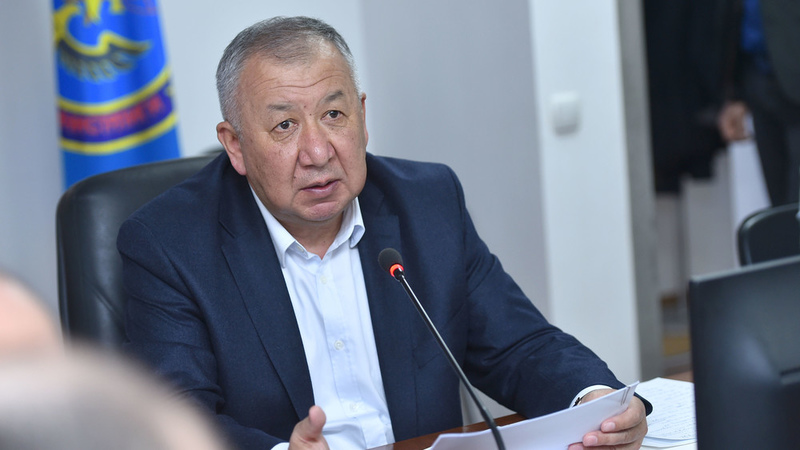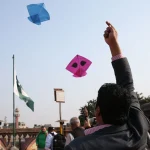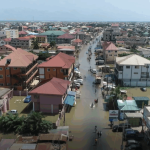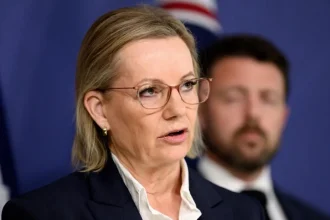Kyrgyzstan’s prime minister has resigned after widespread post-election protests which plunged the country into political chaos.
Kubatbek Boronov has now been replaced by Sadyr Japarov, who protesters released from jail the day before.
Opposition groups had earlier seized control of parliament, protesting election results they say were rigged.
Facing mounting pressure, the country’s electoral body has annulled the results of Sunday’s parliament elections.
The election results had seen parties allied to the country’s president Sooronbai Jeenbekov win the largest share of the votes, amid accusations of mass vote-buying.
President Jeenbekov is still in power but has hinted that he is ready to stand down.
He had earlier told the BBC he was “ready to give the responsibility to strong leaders”, but refused to say who he had in mind.
The latest announcement comes after days of chaos which saw protesters seizing government buildings and freeing high-profile political detainees – including Mr Japarov, who had been serving an 11-year sentence for kidnapping a regional governor during an opposition protest seven years ago.
Former president Almazbek Atambayev, who was serving an 11-year sentence for corruption, was also released.
Only four political parties out of 16 had passed the threshold for entry into parliament in Sunday’s election. Three of the four had close ties to President Jeenbekov.
The president had indicated he was ready to annul the result, before the official announcement came from the Central Election Commission, which said it had invalidated the election results “in consideration of the political situation in the country”.
What did the president say?
“The main goal of the protesters was not to annul the election results but to remove me from power,” President Jeenbekov had earlier told BBC Kyrgyz in an exclusive phone interview from a secret hideaway.
He urged all parties to return to the “legitimate field” and work together to avoid the political upheavals of the past.
“To solve this issue, I am ready to give the responsibility to strong leaders, no matter which group they belong to. I am even ready to help them,” he added.
In an earlier video address earlier the president accused “certain political forces” of using the results of the election as a reason to “violate public order”. “They did not obey law-enforcers, beat up medical workers and damaged buildings,” he said.
Observers say it appears that Mr Jeenbekov, who was elected in 2017, has lost all influence – but it is not clear who would replace him.
Opposition leaders have set up a Coordination Council but there are reports they are divided, arguing over who gets influential government positions.
How did the violence unfold?
Some 5,000 people gathered in the capital Bishkek’s Ala-Too square on Monday to demonstrate against the election results.
The protest was largely peaceful until the evening, when a smaller group splintered off and tried to break through the gates into the parliament building.
The police then used water cannon, stun grenades and tear gas to try and clear the crowds from the main square and surrounding streets.
But demonstrators later flooded back into the central square before storming the parliament building, known as the White House.
Video footage shared on social media showed opposition protesters gaining access to the complex, some by climbing fences and others by pushing open the main gates. Later, smoke could be seen billowing out of the building.
The health ministry said nearly 700 people had been injured, with nine people in intensive care, and a 19-year-old man was killed.
The president’s office remained under the control of protesters on Tuesday, according to an AFP report – and crowds were reportedly roaming the streets targeting businesses.
What do we know about the election?
Out of 16 parties competing for the 120 seats at the Supreme Council, only four parties had crossed the 7% barrier for election.
The two parties that each got a quarter of the vote, Birimdik and Mekenim Kyrgyzstan, both have close ties to President Jeenbekov.
None of the established opposition parties secured a seat at the parliament and on Monday all 12 opposition groups jointly declared they would not recognise the results of the vote.
They accused parties close to the president of vote-buying and voter intimidation – claims international monitors said were “credible” and a cause for “serious concern”.
Some observers claimed to have seen, during the first hours of voting, some citizens with marked masks being handed filled-out ballots. There were also allegations of voters being bribed and bussed in to places where they could swing the result.
Kyrgyzstan – five quick facts
- Second smallest of five Central Asian states, bordered by Kazakhstan, Uzbekistan, Tajikistan and China
- Was known as the Kirghiz Soviet Socialist Republic while part of the Soviet Union
- Acquired its present name – officially the Kyrgyz Republic – after declaring independence in 1991
- Previous uprisings swept President Askar Akayev from power in 2005, and in 2010 ejected President Kurmanbek Bakiyev
- Has a reputation for holding semi-free and fair elections in comparison to its neighbours
















